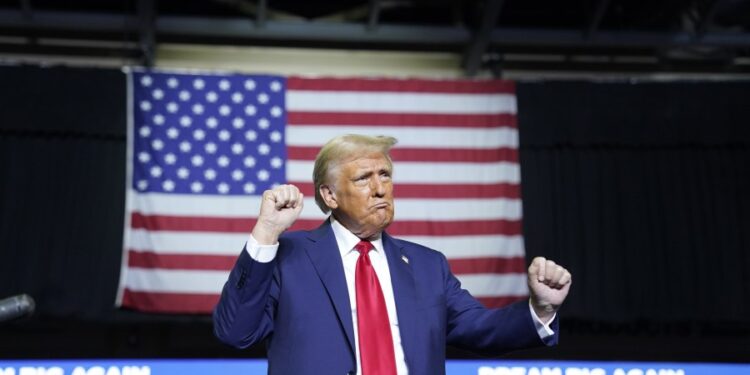
(NewsNation) — Former President Donald Trump vowed to seize money and assets from criminal migrant gangs and the cartels, saying he would give it to the victims of crimes committed by people in the U.S. illegally.
“We’re going to get them out fast. We’re going to get them out,” Trump said. “I’m announcing that for the first time under my administration, we are seizing the assets of the criminal gangs and drug cartels
and we will use those assets to create a compensation fund to provide restitution for the victims of migrant crime, and the government will help in the restoration.”
The former president announced his plan as the cartels continued to get richer.
“Something had to be done,” Trump said.
Cartels: A $13 billion industry
The deputy director of ICE testified to Congress that back in 2018, the criminal cartels were making roughly $500 million annually. The primary funding source was moving drugs illegally into the U.S.
Now, as they smuggle drugs and people, the cartels are reportedly a $13 billion industry annually, according to Congress. That is a 2,500 percent increase from 2018.
Every person who is smuggled has to pay a fee to the cartels, and because of President Joe Biden’s executive action, it is tougher to get people into the country. Because of this, the cartel makes sure every single person pays.
Groups coming across in the Eagle Pass area right are being found with color-coordinated bracelets for the first time in this sector. It’s something the border has only historically seen in the Rio Grande Valley Sector.
Law enforcement believes the cartels are using the bracelets to identify people who have paid. No bracelet means no crossing.
Most migrants reportedly pay about $3,000 to $5,000 to the cartels for help in crossing the border. Some undocumented migrants from special interest countries have reportedly paid upwards of $15,000.
What happens to seized funds, assets?
The DEA claims the cartels are present in all 50 states and are not flying under the radar. When cartels are caught, any funds seized are deposited into the Treasury Forfeiture Fund, an account with the Department of Treasury.
The Treasury Executive Office for Asset Forfeiture administers the Treasury Forfeiture Fund, which was established in 1992, according to a 2023 report from the Treasury Department.
Money deposited into this fund is used for several initiatives, including to pay state and local law enforcement agencies that helped seize the funds, compensate victims where the seized assets represent the proceeds of fraud schemes and cover the operating costs of maintaining the fund, according to the report.
In 2023, over $800 million was in the Treasury Forfeiture Fund.
Last year, CBP seized more than $53 million in undeclared or illicit currency, which can be proceeds from alleged illicit activity or currency that funds transnational criminal organizations, federal data showed.







